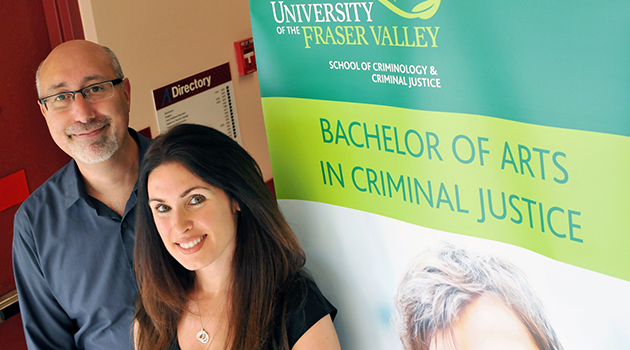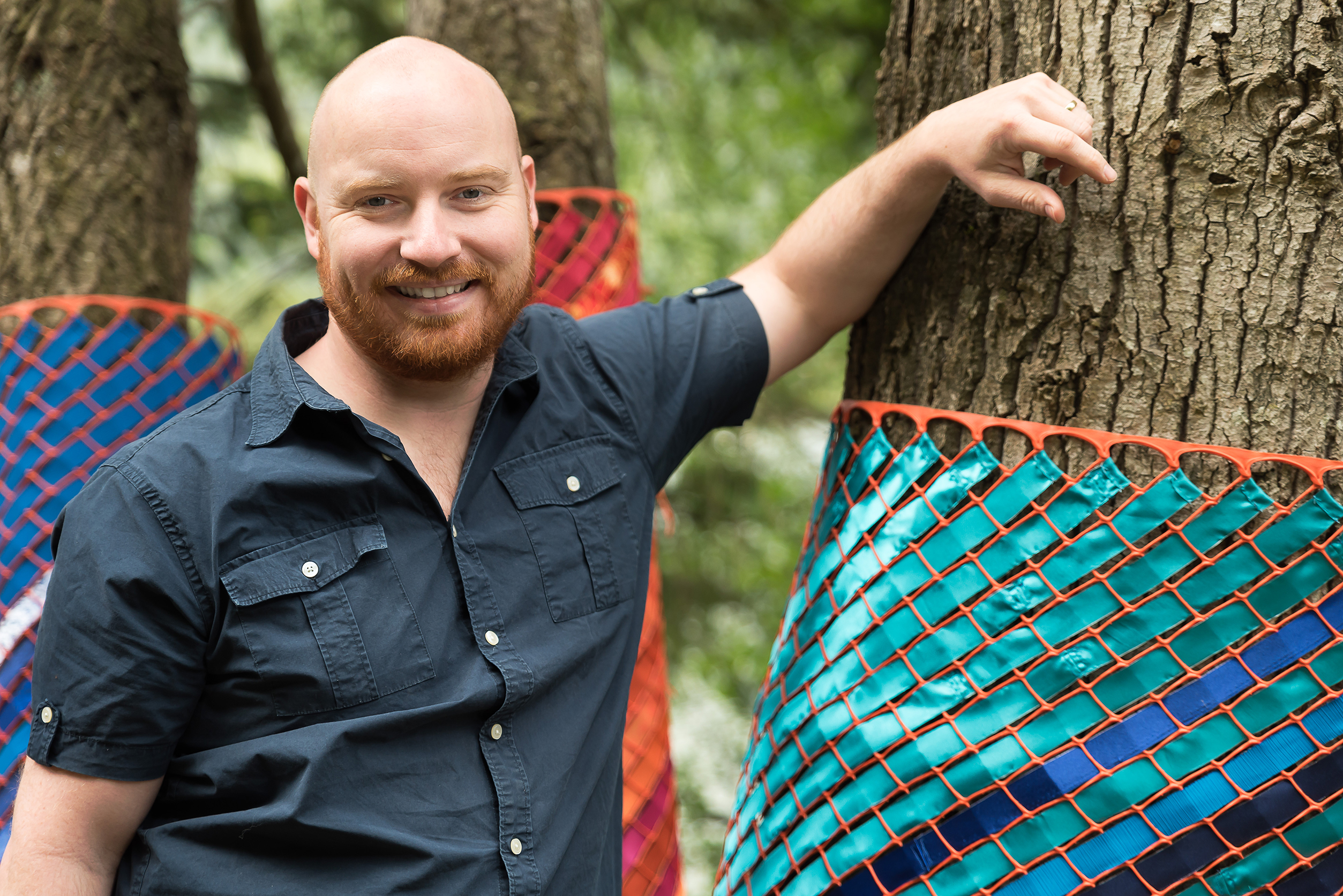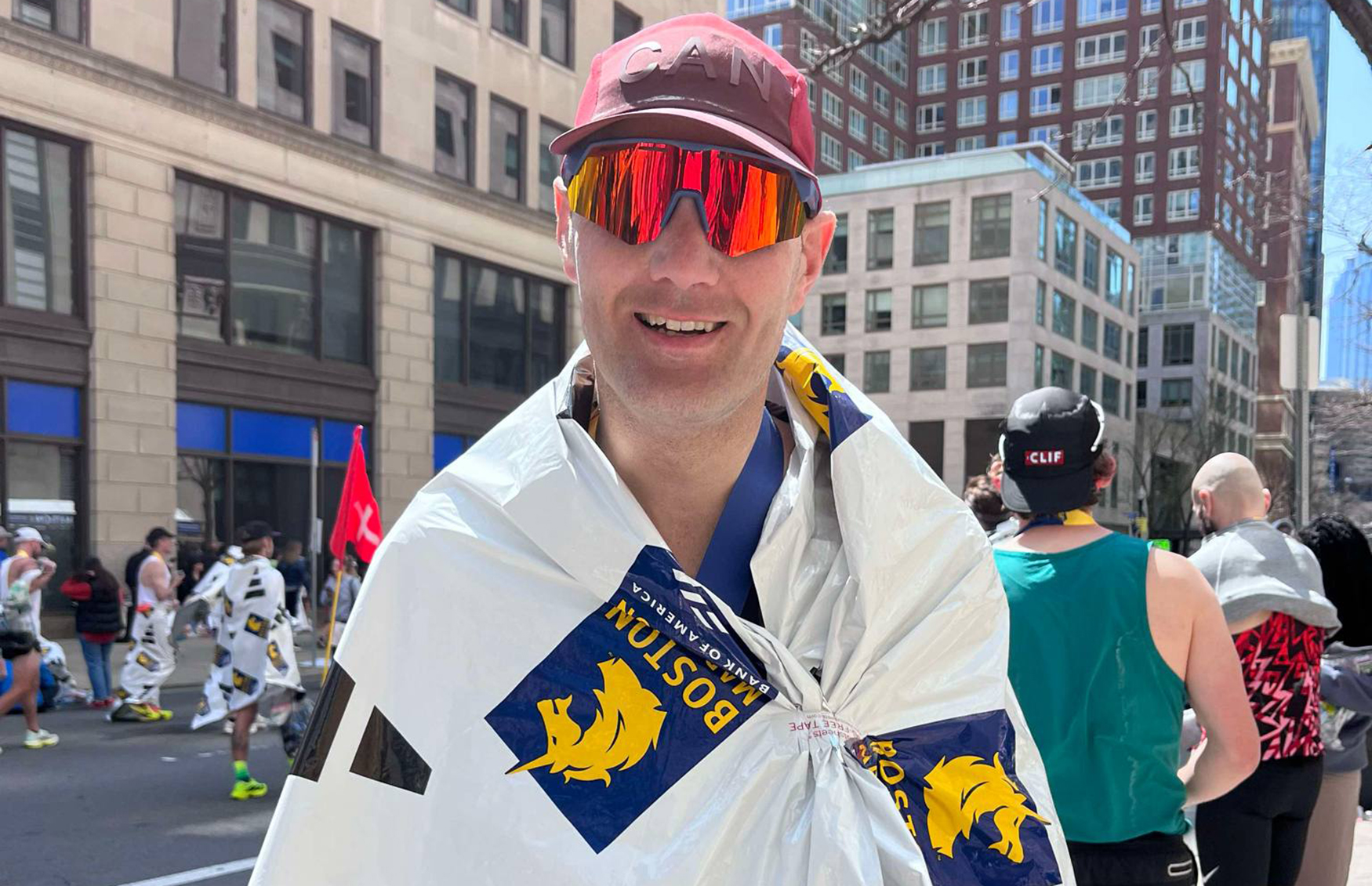Irwin Cohen new RCMP research chair at UFV; Amy Prevost new Crim school director

Dr. Irwin Cohen has taken up the role of RCMP Senior Research Chair in Crime Reduction at the University of the Fraser Valley, effective September 1, 2013.
Cohen, who was most recently director of the School of Criminology and Criminal Justice at UFV, is filling a gap created when Dr. Darryl Plecas left UFV to become the MLA for the Abbotsford South riding and Parliamentary Secretary to the Minister of Justice and Attorney General for Crime Reduction.
Dr. Amy Prevost replaces Cohen as director of the school.
Cohen has been at UFV for 10 years, first as a faculty member in the School of Criminology and Criminal Justice, then as director. He earned his doctorate in criminology at Simon Fraser University, and master’s degrees at both the University of Ottawa and the University of Toronto.
The RCMP Senior Research Chair in Crime Reduction was created in 2006. The position is a partnership between UFV and the RCMP, and is designed to serve as a research resource for police departments throughout British Columbia. The holder of the chair works closely with E Division of the RCMP, which is the administrative home of the police force in BC. The chair also works closely with individual police detachments.
“We consult regularly with the RCMP at the administrative level, but in many ways, the work of this chair is designed to help police departments throughout B.C. with any research priorities they may have,” notes Cohen.
The School of Criminology and Criminal Justice at UFV puts a deliberate emphasis on being responsive to stakeholder and community demands and on involving undergraduate students in the many research projects that it takes on annually. The activities of the chair support both these priorities.
“One of the compelling aspects of this position is that you never can predict what amazing research projects you will become involved with because we are continually responding to requests from police organizations, public safety agencies, and student interests,” Cohen says. “In many other universities, faculty members can spend their entire careers narrowly focused on a very specific research area, but in the UFV School of Criminology and Criminal Justice, we take a deliberate generalist approach to research. This is reflected in the mandate of the chair to be of service to police detachments throughout BC to the benefit of all British Columbians.”
Some of the many research topics that the chair has facilitated projects on over the past few years include an analysis of the security for the Vancouver Olympics, the harms associated with marijuana and grow ops, evidence-based solutions to information sharing between agencies of criminal justice, the criminal histories of prolific offenders, police effectiveness and efficiency, analyses of calls for service, and public safety surveys.
One memorable project saw UFV criminal justice students conduct 440 full-shift ride-alongs with Surrey RCMP officers on a study of what a general duty officer’s shift looks like on a minute-by-minute basis.
“Those 440 ride-alongs were spent with 170 different members. We were able to provide to police leaders a very detailed accounting of what a member does during a typical shift, which could inform changes to make policing more efficient, but also safer and healthier. Plus, it gave our student researchers a real sense of what general duty policing is all about. This is just one example of how this research chair has been beneficial to the RCMP while providing a unique learning opportunity for our students.”
A major focus of the RCMP research chair is crime reduction. While all criminal justice efforts are at their core aimed at reducing crime, this policing model focuses on bringing all relevant stakeholders together to contribute to reducing crime, especially crimes perpetuated by chronic offenders.
“The crime reduction model acknowledges that many stakeholders have a role to play in creating a community-wide cohesive approach to addressing crime and safety,” says Cohen, citing social service agencies, health authorities, local and regional governments, and other public safety agencies, such as fire departments and paramedic services. “It also recognizes that we don’t have an endless capacity to expand policing resources, so it looks at ways to use the resources we have more efficiently. We’re embracing the idea that police should be less reactive, and more focused on using evidence-based empirical data to assist in preventing crime, and developing and implementing strategies that build on those things that police do well and establishing meaningful community partnerships to prevent and reduce crime.”
Connected to the research chair is the UFV Centre for Public Safety and Criminal Justice Research, which was created in recognition of the fact that effective solutions to public safety issues involve many agencies, and are not solely the responsibility of the police and the criminal justice system.
“We at UFV are pleased that Dr. Cohen has assumed the role as the RCMP Research Chair from Dr. Plecas. Both Irwin and Darryl have already made considerable contributions to applied research. We look forward to ongoing collaborations,” said Dr. Adrienne Chan, AVP of Research at UFV.
With Cohen moving to the RCMP research chair position, Dr. Amy Prevost will oversee the administration of the school as she takes over the director role. Prevost, who earned her BA, MA, and PhD in criminology at Simon Fraser University, has been a full-time faculty member at UFV since 2006.
“I want to ensure that the School of Criminology and Criminal Justice continues to be cutting edge both academically and pedagogically as it prepares students for careers in the criminal justice and public safety fields,” she notes, adding that an excellent first-year experience is a vital part of the recipe for student success.
“I recognize the transition from high school to university, or coming back to university, comes with many challenges for some students, so I will continue to develop strategies to make that first-year experience outstanding,” she says. “It is important that the school continues to provide the highest quality of education and that our programs deliver the most current thinking and research in academia and in the field, and that it continues to provide experiential learning through amazing practicum opportunities, our centres, and research projects with faculty.”
Noting that it is important that students acquire the knowledge and skills demanded by the public safety sector, Prevost sees an important part of her role as ensuring that the program is both academically rigorous and relevant, and prepares graduates for exciting careers. Prevost is very aware of the strong local, national, and international reputation of the School of Criminology and Criminal Justice, and is excited about taking on a leadership role.
“I look forward to building on our passion for student success, faculty engagement, and community involvement.”
-30-





